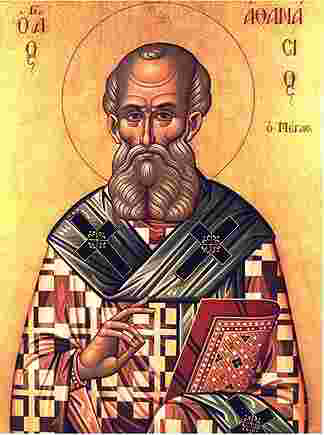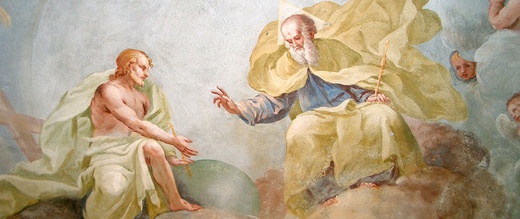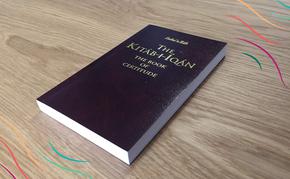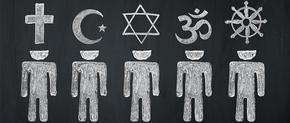The views expressed in our content reflect individual perspectives and do not represent the authoritative views of the Baha'i Faith.
When the Christian intelligentsia of the fourth Century began to define God as three persons – God, Christ and the Holy Spirit – a great deal of conflict broke out, spilling much blood.
In their classic 11-volume history of the world called The Story of Civilization, historians Will and Ariel Durant devoted one book, called The Age of Faith, to the medieval period between 325-1300 AD. In the book, the Durants explain that more Christians were killed by their fellow Christians during the dispute over the meaning of the Trinity than were slain during all the Christian martyrdoms of Pagan Rome.
Most histories leave this period of intense religious internecine warfare out of their descriptions.
The Baha’i teachings condemn and prohibit this kind of religious warfare, provoked by power, dogma, conflicting interpretation and tradition.
If a man would succeed in his search after truth, he must, in the first place, shut his eyes to all the traditional superstitions of the past.
The Jews have traditional superstitions, the Buddhists and the Zoroastrians are not free from them, neither are the Christians! All religions have gradually become bound by tradition and dogma.
All consider themselves, respectively, the only guardians of the truth, and that every other religion is composed of errors. They themselves are right, all others are wrong! The Jews believe that they are the only possessors of the truth and condemn all other religions. The Christians affirm that their religion is the only true one, that all others are false. Likewise the Buddhists and Muhammadans; all limit themselves. If all condemn one another, where shall we search for truth? All contradicting one another, all cannot be true. If each believes his particular religion to be the only true one, he blinds his eyes to the truth in the others. If, for instance, a Jew is bound by the external practice of the religion of Israel, he does not permit himself to perceive that truth can exist in any other religion; it must be all contained in his own!
We should, therefore, detach ourselves from the external forms and practices of religion. We must realize that these forms and practices, however beautiful, are but garments clothing the warm heart and the living limbs of Divine truth. We must abandon the prejudices of tradition if we would succeed in finding the truth at the core of all religions. – Abdu’l-Baha, Paris Talks, pp. 135-136.

St. Athanasius of Alexandria
These intra-Christian wars over the Trinity came about primarily because of pronouncements from official “councils” convened by clergy and government leaders, who got involved because Christianity had grown substantially, becoming the official religion of some governments. A significant prelude to the imperially-sanctioned Second Ecumenical Council was a small council assembled by Athanasius (Father of Orthodoxy) in the seat of his bishopric in Alexandria in 362 AD. There he forced an agreement that the orthodox Christians must speak of three persons (hypostases) of God — provided it was understood that the persons were not of “different substance.” This was to avoid having three different Gods. He also clarified that those who held that God was one “person,” were, in fact, using the wrong term and that what they really meant was that God was one “substance” (homoousia).
The Second Ecumenical Council, convened by the emperor in Constantinople in 381 AD, produced what is often called the “Niceno-Constantinopolitan Creed” or more simple the Nicene Creed. It reaffirmed a belief “in one God, the Father Almighty, Maker of heaven and earth, and of all things visible and invisible;” proclaimed that Jesus was “of one substance [homoousia] with the Father” and that the Holy Spirit (or Holy Ghost) was “the Lord and Giver of life, who proceedeth from the Father, who with the Father and the Son together is worshiped and glorified, who spake by the prophets.” It also
reaffirmed that the Son “came down from heaven, and was incarnate by the Holy Ghost of the Virgin Mary, and was made man.”
This made dogma official, and made the interpretation of powerful men equal to the words of Jesus, and as always, became a prelude to the corruption and downfall of religion.
You May Also Like
Comments

















Further, within Buddhist ...canon, there are abundant examples of how the Buddha claims (and has) divine knowledge that others do not. For example, as an easy reference, the Dhammapada (Chapter 20), is clealry a parallel to Christians Jn 14:6 and has been used to disparage following other paths--as is often appropriate. Some paths are not conducive to progress.
The advance that the Baha'i Faith makes is an upfront scriptural acceptance of the great spiritual teachers of the past. For us, it's not interpretation or liberalism it's a foundation belief.
My long experience and scholarship in the Baha'i Faith does not support your assertion that in the Baha'i Faith acknowledging the sancitity of the Prophet is more important than deeds. Both are needed (as is the community)--exactly as it is with Buddhism where salvation is dependent on reliance on the three refuges: The Buddha, the teachings and the community.
I agree about personality cults. That, however, is not my experience of the orientation within the Baha'i community. Indeed, we don't even depict images of Baha'u'llah and we focus on the teachings not the personality--which is greatly mysterious to us.
Anyway Leonid, I applaud the honesty and depth of your search. I have found great beauty in Buddhism and I make my students study Buddhist psychology--which is wonderful. Buddhism has and does make tremendous contributions to society and it is a divine gift to humanity. The Baha'i Faith lets me proclaim that with scriptural authority while also acknowledging both the truths of other religions and the new teachings brought by Baha'u'llah.
Wishing you all the best
-TTS